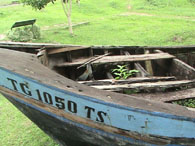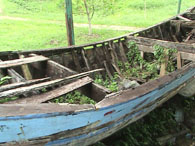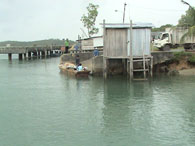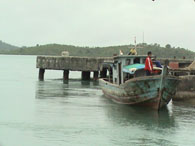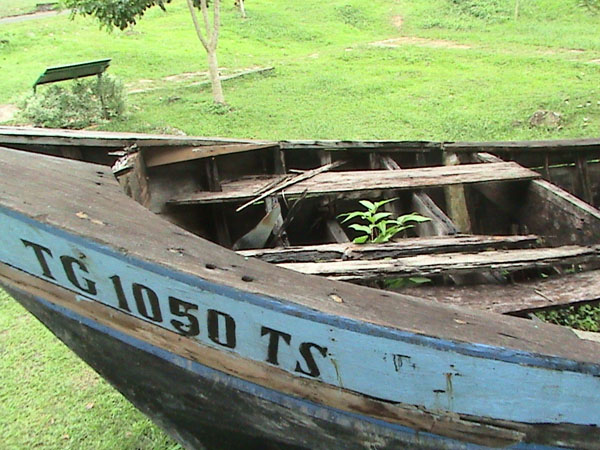Fearful of exposing their two boys to "indoctrination by communist thoughts" - there were rumours that children were encouraged to "spy" on their parents - and the climate of fear and suspicion under the new rulers - Kim's father Thiet, who worked for the local electrical authority, and mother Van decided to build their own boat and flee the country. The boat was never built, but Kim's parents paid to join hundreds of others on the KG-1170, an unremarkable wooden boat 20 metres long and four metres wide. Kim was just two when his parents arrived here after a terrifying 28-day voyage on the boat groaning with the weight of 507 people. "There were two to three dozen people crammed into the cabin which was no larger than the kitchenette in their abandoned apartment," Kim writes.
During the trip, the boat was regularly terrorised and robbed by Thai pirates, Kim was extremely ill with what was thought to be dysentery and the dangerously overcrowded boat was tossed around in storms as it headed for the sanctuary of land. There were "scores of children on board, but none were as young and feeble as Kim, which was why they had been allowed into the cabin". Kim writes about one night of the trip: "KG-1170 was flung about like a kite without strings. From Van's cloistered position in the steering hut, the ocean was not so much powerful but omnipotent . . . At the other end of the cabin, there was a dim bulb that lit the driver and steering wheel. Other than that, Van was totally disoriented as she held on to Kim and thought about Thiet and (four-year-old) Thac outside. She had little comprehension of how long the journey would take and had never been out on the ocean, but was certain that the boat would not hold together if these conditions continued." One day, when Thiet saw pirates approaching, he was not afraid. "By that stage," Thiet told his son years later, "there was very little distance between life and death for us. I did not know what harm pirates could inflict that was much worse than we had already suffered." Resistance would almost certainly have been lethal. "The pirates made it clear that if one person resisted or made trouble, then the boat would be rammed . . ."
Van, meanwhile, was so thirsty "she could smell water". Her focus was on tiny Kim to whom she would hum songs. "Van's humming was just as much for herself as for Kim," he writes. "But by that stage her altruism had become so complete that there was little difference between what she sacrificed for her child and what she did for herself. So while Kim was completely reliant upon his mother, Van also needed Kim to survive. Her focus on his wellbeing distracted her from the despondency that might have otherwise been debilitating. From his frailty she gained strength."
The Huynh family landed on a Malaysian island and were transferred to Bidong, part of the 397th boatload of people to arrive on the island. Amid Bidong's garbage and filth, they built a small shack out of scrounged wood and plastic and waited to meet the various delegations. But now Kim's brother Thac fell dangerously ill. Both boys were transferred to a ship moored offshore called The Lumiere, a floating French hospital which was treating refugees who had been raped or ransacked by pirates, or people close to death in boats that had drifted for many days without food or water.
Kim wrote later: "There were many times when they thought not only that their sons would die, but that they had killed them. In Vietnam, Thiet and Van had determined that escaping and dying was better than living with communism. But during that (time) on Bidong, they often wondered 'Was communism really so intolerable compared to life without their sons?' " Thiet and Van one night decided that if their sons died they would both kill themselves.
|


